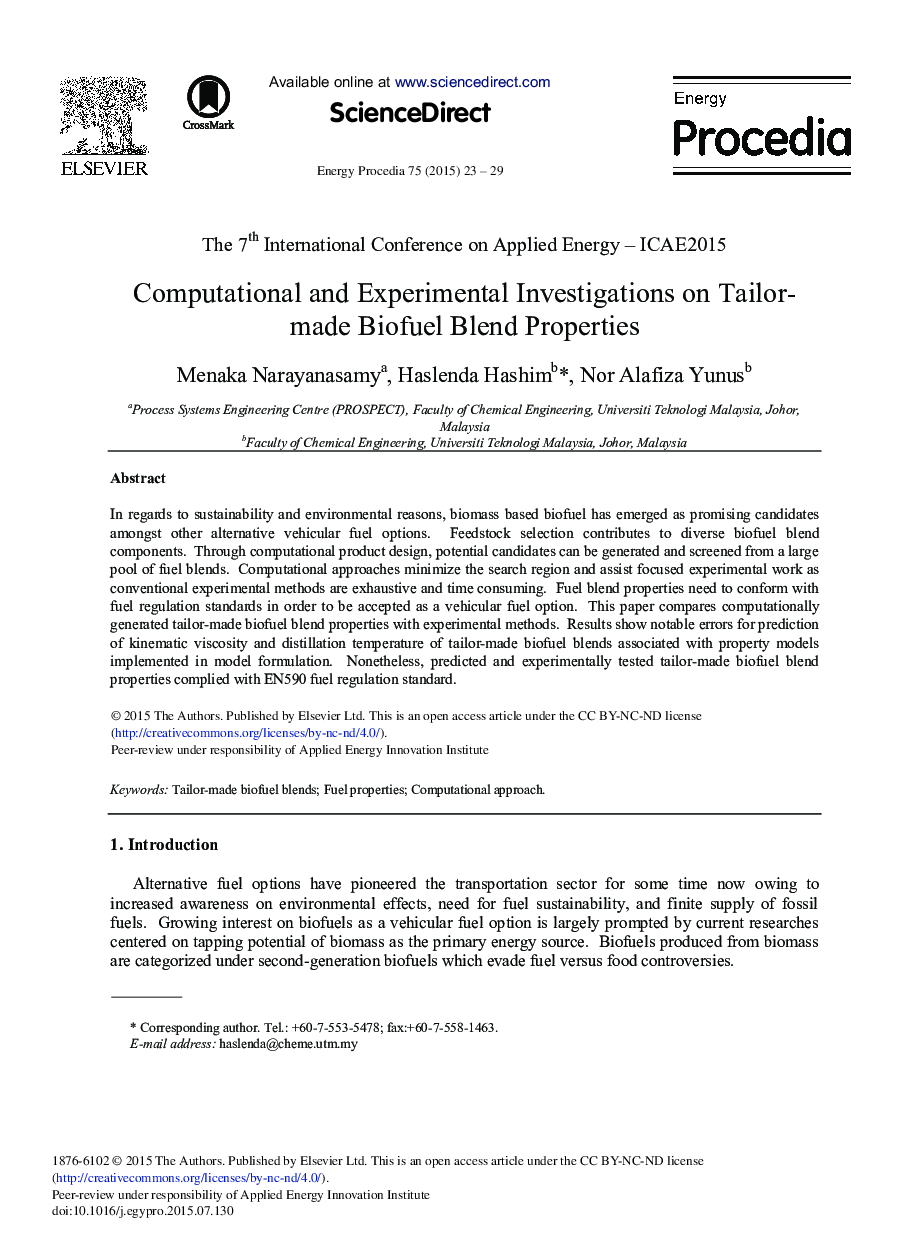| Article ID | Journal | Published Year | Pages | File Type |
|---|---|---|---|---|
| 1509488 | Energy Procedia | 2015 | 7 Pages |
In regards to sustainability and environmental reasons, biomass based biofuel has emerged as promising candidates amongst other alternative vehicular fuel options. Feedstock selection contributes to diverse biofuel blend components. Through computational product design, potential candidates can be generated and screened from a large pool of fuel blends. Computational approaches minimize the search region and assist focused experimental work as conventional experimental methods are exhaustive and time consuming. Fuel blend properties need to conform with fuel regulation standards in order to be accepted as a vehicular fuel option. This paper compares computationally generated tailor-made biofuel blend properties with experimental methods. Results show notable errors for prediction of kinematic viscosity and distillation temperature of tailor-made biofuel blends associated with property models implemented in model formulation. Nonetheless, predicted and experimentally tested tailor-made biofuel blend properties complied with EN590 fuel regulation standard.
